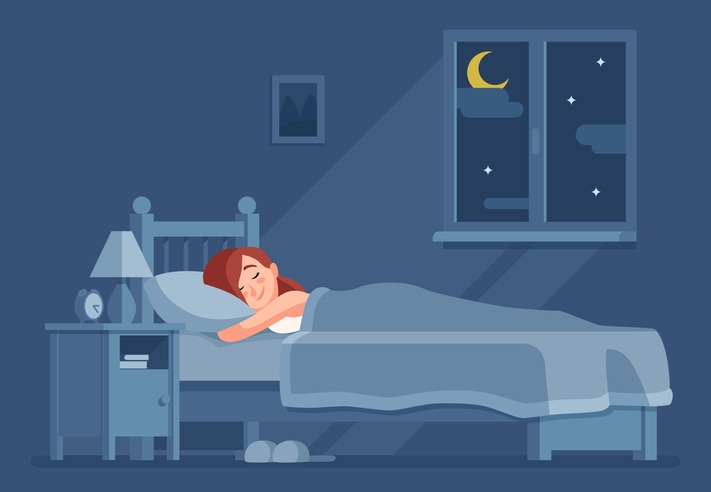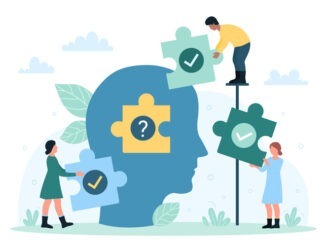
Discover how to improve the quality of your sleep, what causes sleep disorders and possible solutions, as well as top tips from a sleep doctor
CREDIT: This is an edited version of an article that originally appeared on Mental Health
There are four main things that affect the quality of our sleep: health, environment, attitude, and lifestyle.
The following advice can help to HEAL your sleep problems.
Health
As anyone who has tried to get to sleep with a blocked nose or headache knows, physical health problems can stop you from getting a good night’s sleep.
Speaking to your GP or pharmacist about appropriate medication can help with this. Try to avoid taking medication without speaking to a medical professional, as sometimes the medication itself can stop you from sleeping properly if it’s not right for you.
Mental health problems like anxiety and depression can also affect our sleep. In these cases, a combined approach to tackle both the mental health issue and the poor sleep is often the most effective method of treatment.
Environment
Be aware of the presence of gadgets and electronics, such as computers, phones, tablets and TVs. The ‘blue light’ displays suppress melatonin production – the hormone that helps you sleep.
The suppression of melatonin causes sleep disruption. It’s a good idea not to use these devices two hours before you go to sleep to reduce their effect on your sleeping.
Too much light or noise can prevent you from falling asleep or staying asleep. If you can’t control the amount of light and noise, such as light from a streetlamp or noise from a neighbour’s music, you could try using an eye mask or ear plugs.
The temperature of the room is also important. A heater or thicker duvet can help if you regularly find yourself too cold at night, or a thinner cover or opening a window can help if you’re too hot.
Attitude
Relaxation techniques can help you to unwind at times of anxiety. Alternatively, instead of staying in bed and getting more and more frustrated, you could get up and make yourself a warm drink (avoid coffee, tea or any other caffeine drinks) and return to bed when you feel sleepier.
If you keep having problems sleeping for more than a month, you could speak with your GP about the possibility of using Cognitive Behavioural Therapy (CBT). CBT is used to treat some mental health problems and can encourage a more positive attitude.
Lifestyle
Eating rice, oats and dairy products can produce chemicals that increase our desire to sleep. However, food and drink containing lots of caffeine or sugar can keep you awake, so drinking less tea and coffee and eating less chocolate and other sugary foods late in the day might help you to sleep better.
Although it can make you feel tired and can help you get to sleep, alcohol impairs the quality of your sleep and makes you more likely to wake up during the night as the effects wear off.
Exercising on a regular basis is thought to help us sleep, as, among other things, it can help to reduce anxiety and relieve stress. It is, however, important to exercise at the right time. Exercising earlier in the day is better, as exercise increases the body’s adrenaline production, making it more difficult to sleep if done just before bedtime.
Sleep disorders
Insomnia
Insomnia is a condition where you are regularly unable to fall asleep or remain asleep for a long enough period.
One of the most widely used and successful therapies is Cognitive Behavioural Therapy (CBT); for an easy introduction, read Overcoming Insomnia and Sleep Problems by Colin Espie or ask your local GP or sleep clinic for advice on other CBT books or courses.
Regular daytime or early evening exercise can also be a great way to combat insomnia as it helps to reduce anxiety and stress, as can practices such as mindfulness.
Sleepwalking
Sleepwalking happens during deep sleep, meaning people can rarely remember doing it. As well as getting out of bed and walking, some people do tasks in their sleep, such as cleaning.
Sleepwalking is not dangerous unless you start doing risky activities in your sleep. It is often related to stress or lack of sleep, or (in adults) drinking alcohol, so it is important to try and get regular, good-quality sleep by looking at the HEAL factors mentioned earlier in this guide.
Night terrors
A night terror is different to a nightmare. It occurs during deep sleep, meaning that you rarely remember it. Often an extreme and frightening experience, night terrors make your heart beat faster and might cause you to sweat or scream.
If your night terrors are affecting your everyday life or ability to sleep, your GP might be able to refer you for therapy to help you deal with the underlying trauma.
Top tips from the sleep doctor
Don’t get caught napping!
Unless you’re feeling dangerously sleepy (while driving or operating machinery, for instance), napping usually does more harm than good as it makes it more difficult to sleep at night.
If you’re not tired, get up
If you’re finding it difficult to get to sleep, don’t just lie there worrying. Get up for a few minutes and get a drink (no sugar or caffeine, remember!), and go back to bed when you’re feeling a bit sleepier.
Set yourself a ‘get fit’ plan
Eating healthily and getting regular exercise are great ways of helping yourself sleep better. However, plan your meals and exercise to avoid exercising or eating a big meal after mid-evening: doing either of these too close to your bedtime can stop you from sleeping.
Don’t stress it!
Thinking about sleep too much or trying to force yourself to sleep will only keep you awake. Learning how to relax both your body and mind instead will help you to get to sleep much more easily.



Be the first to comment